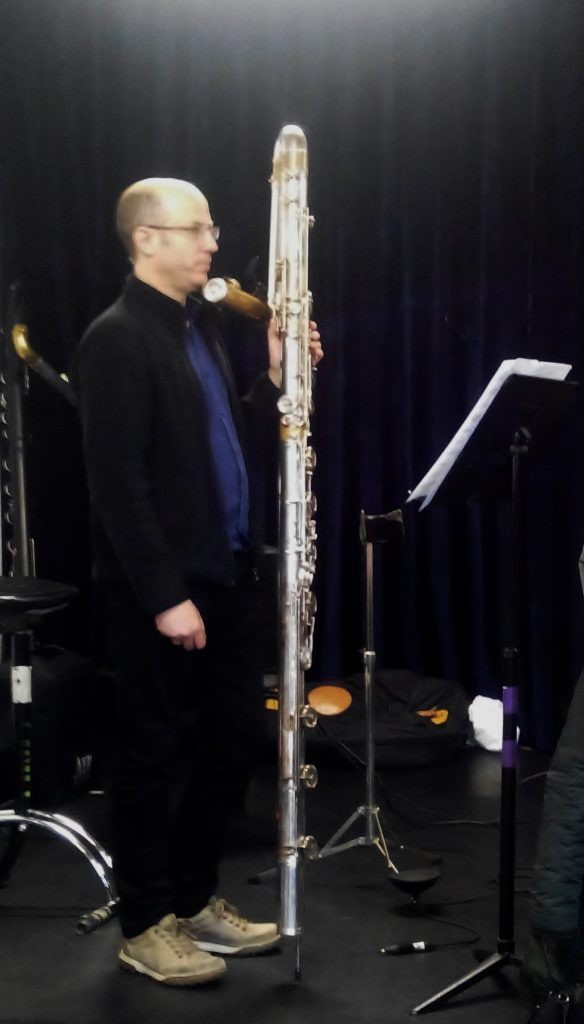‘Veel operaproducties gaan nog altijd uit van een negentiende-eeuwse visie op de wereld’, zegt de Duitse componist Moritz Eggert (1965) in onderstaande podcast. ‘Maar kunst moet relevant zijn voor onze eigen tijd, de antwoorden van toen zijn niet de antwoorden van nu. Onze huidige problemen wortelen voor een groot deel in ons koloniale verleden, in onze uitbuiting van andere landen en volkeren.’
In opdracht van het Opera Forward Festival componeerde hij een nieuwe opera, Caliban, vernoemd naar het gelijknamige personage in The Tempest van Shakespeare. Maar hoewel macht en onmacht hierin een grote rol spelen wil hij een al te directe link met de actualiteit vermijden. ‘De thematiek van de relatie slachtoffer-dader is veel universeler en raakt ons allemaal. Caliban ontwikkelt zich van iemand die onderdrukt wordt, tot iemand die zelf onderdrukker wordt.’
Lyriek en emotie
Eggert wil muziek schrijven die mensen raakt. In moderne opera’s worden volgens hem de personage vaak meer ingezet als symbolen van een idee dan als mensen van vlees en bloed. Hij noemt melodie bijna het belangrijkste aspect van muziek en legt het ‘monster’ Caliban ongegeneerd lyrische zanglijnen in de mond. ‘Caliban zit vol muziek en zelfs vol liefde. Hij wisselt steeds tussen het lage baritonregister en zijn falsetstem. Dat illustreert hoe hij langzaam zijn onschuld verliest.’
‘Prospero is een gesproken rol, omdat de vorst zijn onschuld allang verloren heeft. Hij heeft het vermogen niet meer om te zingen. In zekere zin maakt hij Caliban tot zijn evenbeeld, en aan het slot van de opera verliest ook die zijn melodie. Hij reciteert enkel nog op één en dezelfde toonhoogte. Ik heb Caliban overigens gekoppeld aan een contrabasdwarsfluit, die zijn aardsheid onderstreept.’

Misfits
De thematiek van misvormde verschoppelingen herkennen we ook in zijn eerdere opera’s, zoals Freax en Die Schnecke. ‘Dat thema interesseert me, niet omdat ik mezelf als een freak zie, maar omdat moderne muziek vaak als buitenissig en vreemd wordt beschouwd. Op de een of andere manier moet je je als levende componist altijd verdedigen.’
Inclusieve muziek
Eggert schrijft wat hij noemt ‘inclusieve muziek’, waarin moderne dissonantie, jazz, volksmuziek, renaissancepolyfonie en pop een vanzelfsprekend verbond aangaan. ‘Mijn inspirator was Bernd Alois Zimmermann, een vaak verkeerd begrepen componist. Dat mengen van stijlen komt niet voort uit een postmoderne hang om het publiek te behagen, maar is volkomen authentiek. Het dient zich vanuit de noten zelf aan.’
Eggert schreef zijn anderhalf uur durende opera voor het Asko Schönberg, drie zangers en een spreekstem. Ik bezocht maandag 20 maart een repetitie en sprak hem na afloop voor een podcast.
Luister hier het hele gesprek (in het Engels).
